I’ve never had much luck growing watermelons in our coastal climate. The plants usually succumb to powdery mildew before they really get going and the result is little melons or no fruit at all. This year I tried something different and have seen great results. Apparently, it’s all about timing.
Watermelons like hot weather to mature, in fact according to the University of Ohio, they need daytime temperatures between 70 and 80 degrees, and nighttime temperatures between 65 and 70 degrees. (While we’re at it, soil pH is preferred between 6.0 and 6.8.) Planting before June Gloom set in didn’t work – but planting after did!
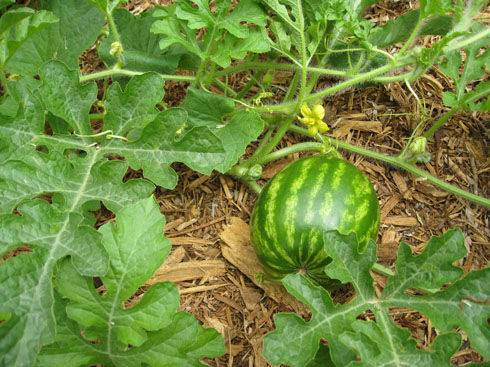
Crimson Sweet watermelon starting off
As the garlic crop was finishing up in late May, we started seeds indoors for Crimson Sweet Watermelon, Sugar Baby Watermelon and Golden Honeymoon muskmelon (a honeydew type). By the time the garlic was harvested, these melons were ready to go in the ground, and the cool part of our coastal summer was over (for the time being). June Gloom had departed and warm weather was here.
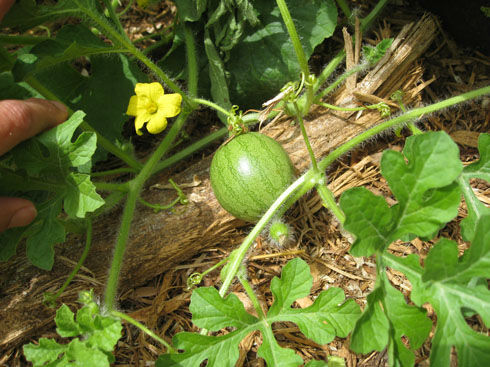
Sugar Baby watermelon starts small
We amended the soil with an inch or two of compost, added a handful of organic vegetable fertilizer and planted out the transplants. We routed the drip line to water every other day for 10 minutes.
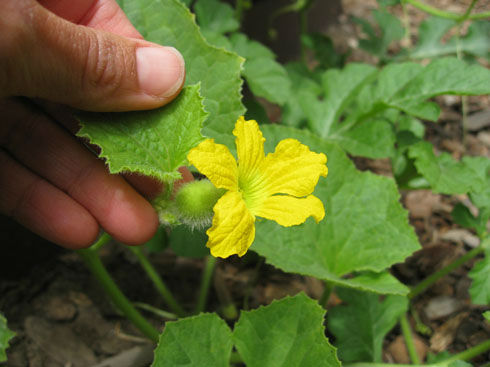
Golden Honeymoon flowering and setting fruit. The leaves are rounder than watermelon leaves, so we can track progress easily.
The Golden Honeymoon took on some powdery mildew, but it somehow keeps growing:
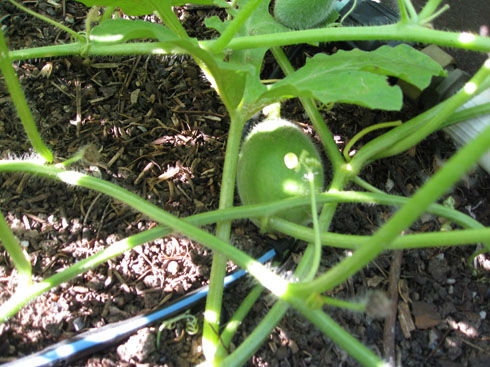
Golden Honeymoon growing in size
Watermelons take 60-70 days to mature, so since we planted late, we expect to have a harvest in October. Watching the progress is almost as satisfying as eating them. So far here is the Crimson Sweet:
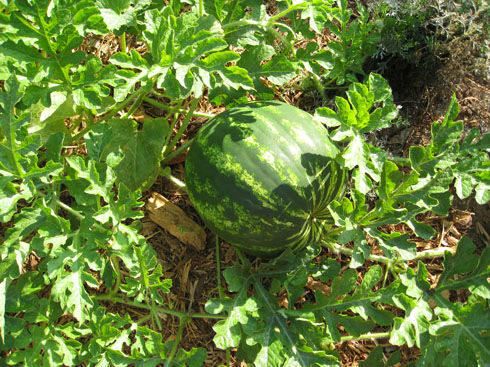
Note the same piece of wood is next to the melon as in the earlier photo.
There are three melons this size on the vines.
In reading Grow Fruit by Alan Buckingham, he suggests that watermelon vines be clipped off after the second leaf beyond the fruit in order to concentrate the plant on fruit production. It also helps contain the jungle of vines spilling over the beds.
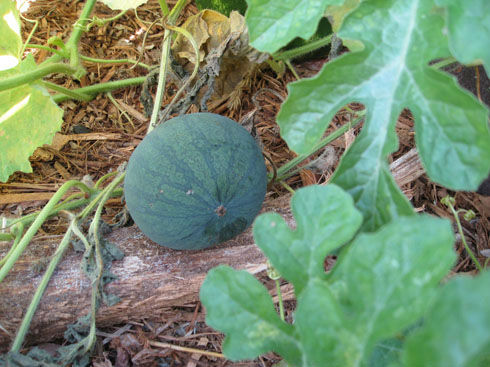
Sugar Baby watermelon darkens as it ripens and grows
We’ve been fertilizing with kelp emulsion every couple of weeks, and the plants just keep growing. Stay tuned for harvesting details (hint – watch out for brown tendrils on either side of the fruit).
Are you growing watermelons this year? Share your successes or challenges here.

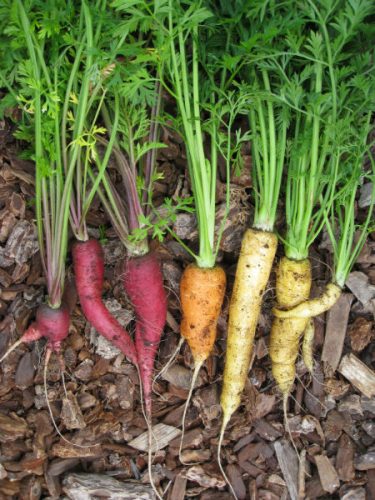

I love this article! I am planting watermelons this year for the first time, I love that you provided pictures with your information so I know what to look for when they start growing! Thank you for the tips!
Tina Martino
http://www.gardenloka.com
me too , I am planting watermelon for the first time and have been reading a lot. Very excited about this.
Want to see what happened? Check out the new post on harvesting: https://blog.gardenerd.com/2011/09/21/harvesting-watermelons